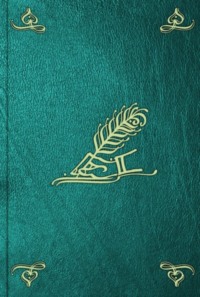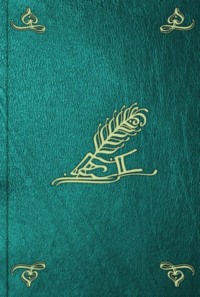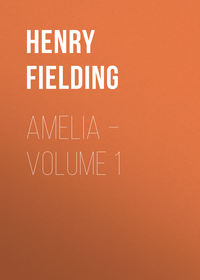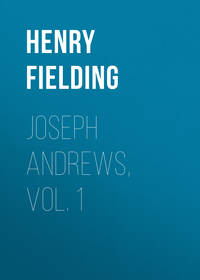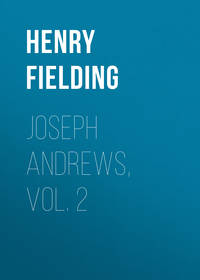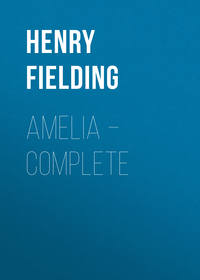 полная версия
полная версияThe Works of Henry Fielding, vol. 12
[Footnote 2: Morat, Morat, Morat! you love the name. —Aurengzebe.]
Hunc. Oh! be not hasty to proclaim my doom!My ample heart for more than one has room:A maid like me Heaven form'd at least for two.[1]I married him, and now I'll marry you.[Footnote 1: "Here is a sentiment for the virtuous Huncamunca!" says
Mr D – s. And yet, with the leave of this great man, the virtuousPanthea, in Cyrus, hath an heart every whit as ample:For two I must confess are gods to me,Which is my Abradatus first, and thee. —Cyrus the Great.Nor is the lady in Love Triumphant more reserved, though not so intelligible:
I am so divided,That I grieve most for both, and love both most.]
Griz. Ha! dost thou own thy falsehood to my face?Think'st thou that I will share thy husband's place?Since to that office one cannot suffice,And since you scorn to dine one single dish on,Go, get your husband put into commission.Commissioners to discharge (ye gods! it fine is)The duty of a husband to your highness.Yet think not long I will my rival bear,Or unrevenged the slighted willow wear;The gloomy, brooding tempest, now confinedWithin the hollow caverns of my mind,In dreadful whirl shall roll along the coasts,Shall thin the land of all the men it boasts,[1] And cram up ev'ry chink of hell with ghosts.[2] So have I seen, in some dark winter's day,A sudden storm rush down the sky's highway,Sweep through the streets with terrible ding-dong,Gush through the spouts, and wash whole crouds along.The crouded shops the thronging vermin skreen,Together cram the dirty and the clean,And not one shoe-boy in the street is seen.[Footnote 1: A ridiculous supposition to any one who considers the great and extensive largeness of hell, says a commentator; but not so to those who consider the great expansion of immaterial substance. Mr Banks makes one soul to be so expanded, that heaven could not contain it:
The heavens are all too narrow for her soul. —Virtue Betrayed.The Persian Princess hath a passage not unlike the author of this:
We will send such shoals of murder'd slaves,Shall glut hell's empty regions.This threatens to fill hell, even though it was empty; Lord Grizzle, only to fill up the chinks, supposing the rest already full. ]
[Footnote 2: Mr Addison is generally thought to have had this simile in his eye when he wrote that beautiful one at the end of the third act of his Cato.]
Hunc. Oh, fatal rashness! should his fury slayMy helpless bridegroom on his wedding-day,I, who this morn of two chose which to wed,May go again this night alone to bed.[1] So have I seen some wild unsettled fool,Who had her choice of this and that joint-stool,To give the preference to either loth,And fondly coveting to sit on both,While the two stools her sitting-part confound,Between 'em both fall squat upon the ground.[Footnote 1: This beautiful simile is founded on a proverb which does honour to the English language:
Between two stools the breech falls to the ground.I am not so well pleased with any written remains of the ancients as with those little aphorisms which verbal tradition hath delivered down to us under the title of proverbs. It were to be wished that, instead of filling their pages with the fabulous theology of the pagans, our modern poets would think it worth their while to enrich their works with the proverbial sayings of their ancestors. Mr Dryden hath chronicled one in heroick;
Two ifs scarce make one possibility. —Conquest of Granada.My lord Bacon is of opinion that whatever is known of arts and sciences might be proved to have lurked in the Proverbs of Solomon. I am of the same opinion in relation to those above-mentioned; at least I am confident that a more perfect system of ethicks, as well as oeconomy, might be compiled out of them than is at present extant, either in the works of the ancient philosophers, or those more valuable, as more voluminous ones of the modern divines. ]
ACT III
SCENE I. – KING ARTHUR'S Palace
[1] Ghost (solus). Hail! ye black horrors of midnight'smidnoon'Ye fairies, goblins, bats, and screech-owls, hail!And, oh! ye mortal watchmen, whose hoarse throatsTh' immortal ghosts dread croakings counterfeit,All hail! – Ye dancing phantoms, who, by day,Are some condemn'd to fast, some feast in fire,Now play in churchyards, skipping o'er the graves,To the [2]loud music of the silent bell,All hail![Footnote 1: Of all the particulars in which the modern stage falls short of the ancient, there is none so much to be lamented as the great scarcity of ghosts Whence this proceeds I will not presume to determine Some are of opinion that the moderns are unequal to that sublime language which a ghost ought to speak One says, ludicrously, that ghosts are out of fashion, another, that they are properer for comedy, forgetting, I suppose, that Aristotle hath told us that a ghost is the soul of tragedy, for so I render the [Greek text: psychae o muythos taes tragodias], which M. Dacier, amongst others, hath mistaken, I suppose, misled by not understanding the Fabula of the Latins, which signifies a ghost as well as fable.
"Te premet nox, fabulaeque manes" —Horace
Of all the ghosts that have ever appeared on the stage, a very learned and judicious foreign critick gives the preference to this of our author. These are his words speaking of this tragedy – "Nec quidquam in illa admirabilius quam phasma quoddam horrendum, quod omnibus abis spectris quibuscum scatet Angelorum tragoedia longe (pace D – ysn V Doctiss dixerim) praetulerim." ]
[Footnote 2: We have already given instances of this figure.]
SCENE II. – KING, GHOST
King. What noise is this? What villain dares, At this dread hoar, with feet and voice profane, Disturb our royal walls?
Ghost. One who defies Thy empty power to hurt him; [1] one who dares Walk in thy bedchamber.
[Footnote 1: Almanzor reasons in the same manner:
A ghost I'll be;And from a ghost, you know, no place is free.– Conquest of Granada.]
King. Presumptuous slave! Thou diest.
Ghost. Threaten others with that word: [1] I am a ghost, and am already dead.
[Footnote 1: "The man who writ this wretched pun," says Mr D., "would have picked your pocket: " which he proceeds to shew not only bad in itself, but doubly so on so solemn an occasion. And yet, in that excellent play of Liberty Asserted, we find something very much resembling a pun in the mouth of a mistress, who is parting with the lover she is fond of:
Ul. Oh, mortal woe! one kiss, and then farewell. Irene. The gods have given to others to fare well. O! miserably must Irene fare.
Agamemnon, in the Victim, is full as facetious on the most solemn occasion – that of sacrificing his daughter:
Yes, daughter, yes; you will assist the priest;Yes, you must offer up your vows for Greece,]
King. Ye stars! 'tis well, Were thy last hour to come,This moment had been it; [1] yet by thy shroudI'll pull thee backward, squeeze thee to a bladder,Till thou dost groan thy nothingness away.Thou fly'st! 'Tis well. [Ghost retires.[2] I thought what was the courage of a ghost!Yet, dare not, on thy life – Why say I that,Since life thou hast not? – Dare not walk againWithin these walls, on pain of the Red Sea.For, if henceforth I ever find thee here,As sure, sure as a gun, I'll have thee laid —[Footnote 1:
I'll pull thee backwards by thy shroud to light,Or else I'll squeeze thee, like a bladder, there,And make thee groan thyself away to air.– Conquest of Granada.Snatch me, ye gods, this moment into nothing.– Cyrus the Great.]
[Footnote 2:
So, art thou gone? Thou canst no conquest boast.I thought what was the courage of a ghost.– Conquest of Granada.King Arthur seems to be as brave a fellow as Almanzor, who says most heroically,
In spite of ghosts I'll on.
]
Ghost. Were the Red Sea a sea of Hollands gin,The liquor (when alive) whose very smellI did detest – did loathe – yet, for the sakeOf Thomas Thumb, I would be laid therein.King. Ha! said you?Ghost. Yes, my liege, I said Tom Thumb,Whose father's ghost I am – once not unknownTo mighty Arthur. But, I see, 'tis true,The dearest friend, when dead, we all forget.King. 'Tis he – it is the honest Gaffer Thumb. Oh! let me press thee in my eager arms, Thou best of ghosts! thou something more than ghost!
Ghost. Would I were something more, that we again Might feel each other in the warm embrace. But now I have th' advantage of my king, [1] For I feel thee, whilst thou dost not feel me.
[Footnote 1: The ghost of Lausaria, in Cyrus, is a plain copy of this, and is therefore worth reading:
Ah, Cyrus!Thou may'st as well grasp water, or fleet air,As think of touching my immortal shade.– Cyrus the Great.]
King. But say, [1] thou dearest air, oh! say what dread, Important business sends thee back to earth?
[Footnote 1:
Thou better part of heavenly air.– Conquest of Granada,.]
Ghost. Oh! then prepare to hear – which but to hearIs full enough to send thy spirit hence.Thy subjects up in arms, by Grizzle led,Will, ere the rosy-finger'd morn shall opeThe shutters of the sky, before the gateOf this thy royal palace, swarming spread.[1] So have I seen the bees in clusters swarm,So have I seen the stars in frosty nights,So have I seen the sand in windy days,So have I seen the ghosts on Pluto's shore,So have I seen the flowers in spring arise,So have I seen the leaves in autumn fall,So have I seen the fruits in summer smile,So have I seen the snow in winter frown.[Footnote 1: "A string of similes," says one, "proper to be hung up in the cabinet of a prince."]
King. D – n all thou hast seen! – dost thou, beneath the shape Of Gaffer Thumb, come hither to abuse me With similes, to keep me on the rack? Hence – or, by all the torments of thy hell, [1] I'll run thee through the body, though thou'st none.
[Footnote 1: This passage hath been understood several different ways by the commentators. For my part, I find it difficult to understand it at all. Mr Dryden says —
I've heard something how two bodies meet,
But how two souls join I know not.
So that, till the body of a spirit be better understood, it will be difficult to understand how it is possible to run him through it. ]
Ghost. Arthur, beware! I must this moment hence,Not frighted by your voice, but by the cocks!Arthur, beware, beware, beware, beware!Strive to avert thy yet impending fate;For, if thou'rt kill'd to-day,To-morrow all thy care will come too late.SCENE III. – KING (solus)
King. Oh! stay, and leave me not uncertain thus!And, whilst thou tellest me what's like my fate,Oh! teach me how I may avert it too!Curst be the man who first a simile made!Curst ev'ry bard who writes! – So have I seenThose whose comparisons are just and true,And those who liken things not like at all.The devil is happy that the whole creationCan furnish out no simile to his fortune.SCENE IV. – KING, QUEEN
Queen. What is the cause, my Arthur, that you stealThus silently from Dollallolla's breast?Why dost thou leave me in the [1] dark alone,When well thou know'st I am afraid of sprites?[Footnote 1: Cydaria is of the same fearful temper with Dollallolla.
I never durst in darkness be alone.– Indian Emperor.]
King. Oh, Dollallolla! do not blame my love!I hop'd the fumes of last night's punch had laidThy lovely eyelids fast. – But, oh! I findThere is no power in drams to quiet wives;Each morn, as the returning sun, they wake,And shine upon their husbands.Queen. Think, oh think! What a surprise it must be to the sun, Rising, to find the vanish'd world away. What less can be the wretched wife's surprise When, stretching out her arms to fold thee fast, She found her useless bolster in her arms. [1] Think, think, on that. – Oh! think, think well on that. I do remember also to have read [2] In Dryden's Ovid's Metamorphoses, That Jove in form inanimate did lie With beauteous Danae: and, trust me, love, [3] I fear'd the bolster might have been a Jove.
[Footnote 1:
Think well of this, think that, think every way. —Sophon.]
[Footnote 2: These quotations are more usual in the comick than in the tragick writers.]
[Footnote 3: "This distress," says Mr D – , "I must allow to be extremely beautiful, and tends to heighten the virtuous character of Dollallolla, who is so exceeding delicate, that she is in the highest apprehension from the inanimate embrace of a bolster. An example worthy of imitation for all our writers of tragedy."]
King. Come to my arms, most virtuous of thy sex!Oh, Dollallolla! were all wives like thee,So many husbands never had worn horns.Should Huncamunca of thy worth partake,Tom Thumb indeed were blest. – Oh, fatal name,For didst thou know one quarter what I know,Then would'st thou know – Alas! what thou would'st know!Queen. What can I gather hence? Why dost thou speakLike men who carry rareeshows about?"Now you shall see, gentlemen, what you shall see."O, tell me more, or thou hast told too much.SCENE V. – KING, QUEEN, NOODLE
Nood. Long life attend your majesties serene,Great Arthur, king, and Dollallolla, queen!Lord Grizzle, with a bold rebellious crowd,Advances to the palace, threat'ning loud,Unless the princess be deliver'd straight,And the victorious Thumb, without his pate,They are resolv'd to batter down the gate.SCENE VI. – KING, QUEEN, HUNCAMUNCA, NOODLE
King. See where the princess comes! Where is Tom Thumb?
Hunc. Oh! sir, about an hour and half agoHe sallied out t' encounter with the foe,And swore, unless his fate had him misled,From Grizzle's shoulders to cut off his head,And serve't up with your chocolate in bed.King. 'Tis well, I found one devil told us both. Come, Dollallolla, Huncamunca, come; Within we'll wait for the victorious Thumb; In peace and safety we secure may stay, While to his arm we trust the bloody fray; Though men and giants should conspire with gods, [1] He is alone equal to all these odds.
[Footnote 1:
"Credat Judaeus Appella,Non ego,"says Mr D – . "For, passing over the absurdity of being equal to odds, can we possibly suppose a little insignificant fellow – I say again, a little insignificant fellow – able to vie with a strength which all the Samsons and Herculeses of antiquity would be unable to encounter?" I shall refer this incredulous critick to Mr Dryden's defence of his Almanzor; and, lest that should not satisfy him, I shall quote a few lines from the speech of a much braver fellow than Almanzor, Mr Johnson's Achilles:
Though human race rise in embattled hosts,To force her from my arms – Oh! son of Atreus!By that immortal pow'r, whose deathless spiritInforms this earth, I will oppose them all. —Victim.]
Queen. He is, indeed,[1] a helmet to us all;While he supports we need not fear to fall;His arm despatches all things to our wish?And serves up ev'ry foe's head in a dish.Void is the mistress of the house of care,While the good cook presents the bill of fare;Whether the cod, that northern king of fish,Or duck, or goose, or pig, adorn the dish,No fears the number of her guests afford,But at her hour she sees the dinner on the board.[Footnote 1: "I have heard of being supported by a staff," says Mr
D., "but never of being supported by a helmet." I believe he never heard of sailing with wings, which he may read in no less a poet than
Mr Dryden:
Unless we borrow wings, and sail through air.– Love Triumphant.What will he say to a kneeling valley?
– I'll standLike a safe valley, that low bends the kneeTo some aspiring mountain. —Injured Love.I am ashamed of so ignorant a carper, who doth not know that an epithet in tragedy is very often no other than an expletive. Do not we read in the New Sophonisba of "grinding chains, blue plagues, white occasions, and blue serenity?" Nay, it is not the adjective only, but sometimes half a sentence is put by way of expletive, as, "Beauty pointed high with spirit," in the same play; and, "In the lap of blessing, to be most curst," in the Revenge. ]
SCENE VII. —Plain. – GRIZZLE, FOODLE, Rebels
Griz. Thus far our arms with victory are crown'd; For, though we have not fought, yet we have found [1] No enemy to fight withal.
[Footnote 1: A victory like that of Almanzor: Almanzor is victorious without fight. —Conq. of Granada. ]
Food. Yet I, Methinks, would willingly avoid this day, [1] This first of April, to engage our foes.
[Footnote 1: Well have we chose an happy day for fight;
For every man, in course of time, has found
Some days are lucky, some unfortunate. —King Arthur.
]
Griz. This day, of all the days of th' year, I'd choose, For on this day my grandmother was born. Gods! I will make Tom Thumb an April-fool; [1] Will teach his wit an errand it ne'er knew, And send it post to the Elysian shades.
[Footnote 1: We read of such another in Lee:
Teach his rude wit a flight she never made,
And send her post to the Elysian shade. —Gloriana.
]
Food. I'm glad to find our army is so stout, Nor does it move my wonder less than joy.
Griz. [1] What friends we have, and how we came so strong, I'll softly tell you as we march along.
[Footnote 1: These lines are copied verbatim in the Indian Emperor.]
SCENE VIII. —Thunder and Lightning. – TOM THUMB, GLUMDALCA, cum suis
Thumb. Oh, Noodle! hast thou seen a day like this? [1] The unborn thunder rumbles o'er our heads, [2] As if the gods meant to unhinge the world, And heaven and earth in wild confusion hurl; Yet will I boldly tread the tott'ring ball.
[Footnote 1: Unborn thunder rolling in a cloud. —Conq. of Granada. ]
[Footnote 2:
Were heaven and earth in wild confusion hurl'd, Should the rash gods unhinge the rolling world, Undaunted would I tread the tott'ring ball, Crush'd, but unconquer'd, in the dreadful fall. —Female Warrior. ]
Merl. Tom Thumb!
Thumb. What voice is this I hear?
Merl. Tom Thumb!
Thumb. Again it calls.
Merl. Tom Thumb!
Glum. It calls again.
Thumb. Appear, whoe'er thou art; I fear thee not.
Merl. Thou hast no cause to fear – I am thy friend, Merlin by name, a conjuror by trade, And to my art thou dost thy being owe.
Thumb. How!
Merl. Hear, then, the mystick getting of Tom Thumb.[1] His father was a ploughman plain,His mother milk'd the cow;And yet the way to get a sonThis couple knew not how,Until such time the good old manTo learned Merlin goes,And there to him, in great distress,In secret manner showsHow in his heart he wish'd to haveA child, in time to come,To be his heir, though it may beNo bigger than his thumb:Of which old Merlin was foretoldThat he his wish should have;And so a son of stature smallThe charmer to him gave.Thou'st heard the past – look up and see the future.[Footnote 1: See the History of Tom Thumb, page 2.]
Thumb. [1] Lost in amazement's gulf, my senses sink; See there, Glumdalca, see another [2] me!
[Footnote 1:
Amazement swallows up my sense,And in the impetuous whirl of circling fateDrinks down my reason. —Persian Princess.]
[Footnote 2:
I have outfaced myself.What! am I two? Is there another me? —King Arthur.]
Glum. Oh, sight of horror! see, you are devour'd By the expanded jaws of a red cow.
Merl. Let not these sights deter thy noble mind, [1] For, lo! a sight more glorious courts thy eyes. See from afar a theatre arise; There ages, yet unborn, shall tribute pay To the heroick actions of this day; Then buskin tragedy at length shall chuse Thy name the best supporter of her muse.
[Footnote 1: The character of Merlin is wonderful throughout; but most so in this prophetick part. We find several of these prophecies in the tragick authors, who frequently take this opportunity to pay a compliment to their country, and sometimes to their prince. None but our author (who seems to have detested the least appearance of flattery) would have past by such an opportunity of being a political prophet.]
Thumb. Enough: let every warlike musick sound, We fall contented, if we fall renown'd.
SCENE IX. – LORD GRIZZLE, FOODLE, Rebels, on one side; TOM THUMB, GLUMDALCA, on the other
Food. At length the enemy advances nigh, [1] I hear them with my ear, and see them with my eye.
[Footnote 1:
I saw the villain, Myron; with these eyes I saw him.
– Busiris.
In both which places it is intimated that it is sometimes possible to see with other eyes than your own. ]
Griz. Draw all your swords: for liberty we fight, [1] And liberty the mustard is of life.
[Footnote 1: "This mustard," says Mr D., "is enough to turn one's stomach. I would be glad to know what idea the author had in his head when he wrote it." This will be, I believe, best explained by a line of Mr Dennis:
And gave him liberty, the salt of life. —Liberty Asserted.The understanding that can digest the one will not rise at the other.]
Thumb. Are you the man whom men famed Grizzle name?
Griz. [1] Are you the much more famed Tom Thumb?
[Footnote 1:
Han. Are you the chief whom men famed Scipio call?
Scip. Are you the much more famous Hannibal?
– Hannibal.
]
Thumb. The same.
Griz. Come on; our worth upon ourselves we'll prove; For liberty I fight.
Thumb. And I for love.
[A bloody engagement between the two armies here; drums beating, trumpets sounding, thunder and lightning. They fight off and on several times. Some fall. GRIZ. and GLUM. remain.
Glum. Turn, coward, turn; nor from a woman fly.
Griz. Away – thou art too ignoble for my arm.
Glum. Have at thy heart.
Griz. Nay, then I thrust at thine.
Glum. You push too well; you've run me through the guts, And I am dead.
Griz. Then there's an end of one.
Thumb_. When thou art dead, then there's an end of two, [1] Villain.
[Footnote 1: Dr. Young seems to have copied this engagement in his
Busiris:
Myr. Villain! Mem. Myron! Myr. Rebel! Mem. Myron! Myr. Hell! Mem. Mandane! ]
Griz. Tom Thumb!
Thumb. Rebel!
Griz. Tom Thumb!
Thumb. Hell!
Griz. Huncamunca!
Thumb. Thou hast it there.
Griz. Too sure I feel it.
Thumb. To hell then, like a rebel as you are, And give my service to the rebels there.
Griz. Triumph not, Thumb, nor think thou shalt enjoy, Thy Huncamunca undisturb'd; I'll send [1] My ghost to fetch her to the other world; [2] It shall but bait at heaven, and then return. [3] But, ha! I feel death rumbling in my brains: [4] Some kinder sprite knocks softly at my soul, And gently whispers it to haste away. I come, I come, most willingly I come. [5] So when some city wife, for country air, To Hampstead or to Highgate does repair, Her to make haste her husband does implore, And cries, "My dear, the coach is at the door: " With equal wish, desirous to be gone, She gets into the coach, and then she cries – "Drive on!"
[Footnote 1: This last speech of my lord Grizzle hath been of great service to our poets:
I'll hold it fast As life, and when life's gone I'll hold this last; And if thou tak'st it from me when I'm slain, I'll send my ghost, and fetch it back again. —Conquest of Granada. ]
[Footnote 2: My soul should with such speed obey,
It should not bait at heaven to stop its way.
Lee seems to have had this last in his eye:
'Twas not my purpose, sir, to tarry there; I would but go to heaven to take the air. —Gloriana. ]


